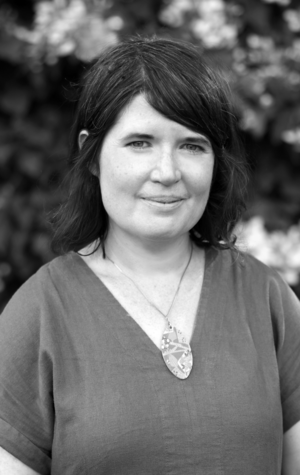Dr. Danielle Levac
Scientist

Team
Scientists
Biography
Danielle Levac graduated from the University of Ottawa in 2001 with a BSc degree in Physiotherapy. She has worked as a physiotherapist in pediatric acute care, rehabilitation, and school health support settings. In 2007, she completed an MSc in Rehabilitation Science at McMaster University, exploring recovery patterns in children and youth with acquired brain injury (ABI). Danielle completed a PhD in Rehabilitation Science at McMaster in 2012, under the supervision of Dr. Cheryl Missiuna. The focus of her research was on the use of commercial active video games (specifically, the Nintendo Wii & WiiFit) to promote motor learning within physiotherapy interventions for children and youth with ABI. She then undertook a CIHR-funded postdoctoral fellowship at the University of Ottawa under the supervision of Dr. Heidi Sveistrup, exploring a variety of virtual reality and active video gaming systems in children and youth with cerebral palsy and adults with stroke.
Dr. Levac was an assistant professor at Northeastern University in Boston, MA in the Department of Physical Therapy and Rehabilitation Sciences from 2015-2021, where she directed the Rehabilitation Games & Virtual Reality Lab. Her research program at Northeastern was supported by the National Institutes of Health, the American Academy of Cerebral Palsy and Developmental Medicine, the Cerebral Palsy Alliance Research Foundation, the Deborah Munroe Noonan Foundation, the Charles H. Hood Foundation and the Tufts Medical Center Clinical and Translational Science Institute.
In 2021, Dr. Levac joined the faculty of the School of Rehabilitation in the Faculty of Medicine at the University of Montreal as an associate professor. She is also a researcher at the Technopole in Pediatric Rehabilitation of the Marie Enfant Children’s Rehabilitation Center at the CHU Sainte-Justine in Montreal, QC. Her Laboratoire d'Innovations Numériques, Polytechniques et Interactives en Réadaptation pour Enfants (LaboINSPIRE) at the Technopole focuses on the integration of virtual reality and active video games in pediatric rehabilitation practice, particularly for children with cerebral palsy. The mission of LaboINSPIRE is to use a problem-based, integrated knowledge translation approach in partnership with children, families and clinicians to promote the sustainable and evidence-based integration of digital innovations in pediatric rehabilitation.
Dr. Levac is currently on the Editorial Board of Physiotherapy and Occupational Therapy in Pediatrics, the Board of Directors of the International Society for Virtual Rehabilitation, and serves on the research committee of the American Physical Therapy Association Academy of Pediatric Physical Therapy and the research committee of the American Academy of Cerebral Palsy and Developmental Medicine.
Areas of Focus
Understanding how practice in virtual environments can promote motor learning that transfers to improved skill performance in the real word.
Resources
The Motor Learning Strategy Clinical Decision-Making Process
A clinical decision-making process outlining how therapists can use motor learning strategies in practice.
Partnering for Change
The Partnering for Change team used evidence from the literature to design a conceptual model that was tested in school settings and refined.
An Update On The Use Of Virtual Reality Technology To Improve Movement In Children With Physical Impairments
The use of virtual reality technology as a rehabilitation intervention to improve or remediate children's movement skills is being explored in clinical practice and research.
The Motor Learning Strategy Rating Instrument
The Motor Learning Strategy Rating Instrument (MLSRI) is an observer-rated instrument that measures the extent to which physiotherapists use motor learning strategies during physiotherapy interventions for children with acquired brain injury (ABI).
